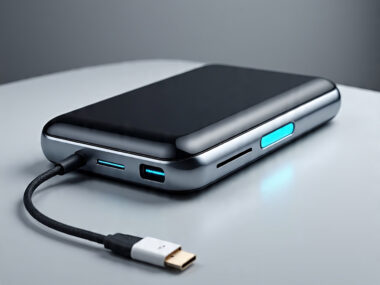In Nigeria, grinding machines are indispensable tools across households, small businesses, and industries, transforming raw materials like grains, spices, and even industrial components into usable forms. Whether it’s a roadside vendor grinding pepper or a factory processing maize, these machines save time and boost efficiency. As of March 31, 2025, we offer a comprehensive overview of grinding machine prices in Nigeria, detailing the costs of various types, key factors affecting pricing, and the best places to purchase them, helping you make an informed investment tailored to your needs.
Table of Contents
ToggleCurrent Price Ranges of Grinding Machines in Nigeria
The cost of a grinding machine in Nigeria depends on its type, power source, capacity, and brand. Below, we outline the latest price ranges as of March 2025, based on market trends in cities like Lagos, Abuja, and Onitsha:
- Manual Grinding Machines:
- Price: ₦4,000 – ₦25,000
- Small, hand-operated units like plastic hand grinders for domestic use or basic metal grinders for light tasks.
- Electric Grinding Machines (Small-Scale):
- Price: ₦25,000 – ₦150,000
- Household or small business models (e.g., spice or corn grinders) with capacities of 5-25kg per hour.
- Petrol/Diesel-Powered Grinding Machines:
- Price: ₦60,000 – ₦400,000
- Mid-range options with engines (e.g., 5.5HP-13HP) for grinding grains like maize or beans, suited for areas with unreliable electricity.
- Industrial Grinding Machines:
- Price: ₦400,000 – ₦1,500,000+
- Heavy-duty units for large-scale processing (e.g., 250-600kg per hour), often used in factories or commercial mills.
- Angle Grinders (Mechanical):
- Price: ₦35,000 – ₦600,000
- Handheld or industrial tools for metalwork, woodworking, or construction, varying by brand (e.g., Bosch, Makita).
These prices reflect estimates from online platforms, physical markets, and suppliers, with fluctuations based on location and currency exchange rates.
Popular Types and Their Costs
We highlight common grinding machine types and their typical price points:
- Plastic Hand Grinding Machine: ₦4,000 – ₦9,000
- Affordable, manual option for grinding fruits, vegetables, or spices at home.
- Maize/Corn Grinding Machine: ₦144,000 – ₦1,400,000
- Ranges from small electric mills (e.g., Honlu, ₦144,000) to diesel-powered models (e.g., TZ, ₦535,000+) for commercial use.
- Pepper/Spice Grinder: ₦25,000 – ₦403,000
- Includes compact units (e.g., Yuning, ₦25,000) and stainless steel models (e.g., RB, ₦403,000) for bulk spices.
- Cassava Grinding Machine: ₦60,000 – ₦500,000
- Locally made options, from manual (under ₦100,000) to electric/diesel units for garri or flour production.
- Angle Grinder: ₦35,000 – ₦150,000
- Popular brands like Bosch or INGCO for cutting and smoothing metal or stone.
Factors Influencing Grinding Machine Prices
Several elements shape the cost of grinding machines in Nigeria:
- Power Source: Manual machines are cheapest, while electric and fuel-powered units cost more due to motors or engines.
- Capacity: Higher output (e.g., 600kg/hour vs. 5kg/hour) drives prices up significantly.
- Brand: Reputable names like Bosch or Makita command premiums (₦50,000+ for angle grinders) over generic or local brands.
- Exchange Rate: With the naira at ₦1,600 – ₦1,700 per USD in 2025, imported machines or parts inflate costs.
- Location: Prices in Lagos may exceed those in rural areas by ₦5,000 – ₦20,000 due to transport and demand.
Where to Buy Grinding Machines in Nigeria
We identify key purchasing options:
- Physical Markets:
- Locations: Ladipo Market (Lagos), Ariaria Market (Aba)
- Price Range: ₦4,000 – ₦1,000,000
- Benefit: Hands-on inspection and bargaining potential.
- Online Platforms:
- Sites: Jumia (https://www.jumia.com.ng), Jiji (https://jiji.ng)
- Price Range: ₦25,000 – ₦1,500,000
- Benefit: Delivery convenience and broader selection.
- Specialty Stores:
- Examples: Mamtus (Lagos/Anambra), Tikweld
- Price Range: ₦35,000 – ₦600,000
- Benefit: Authentic branded machines with warranties.
- Local Fabricators:
- Price Range: ₦60,000 – ₦500,000
- Benefit: Custom-built options, often cheaper for cassava or grain grinders.
Grinding Machines vs. Alternatives
We compare grinding machines to manual methods:
- Grinding Machine (Electric, 75cl): ₦25,000 – ₦150,000
- Fast, efficient, and consistent output.
- Manual Grinding (Stone/Pestle): ₦0 – ₦2,000
- Free or low-cost but labor-intensive and slow.
For small-scale needs, manual options suffice, but machines dominate for speed and volume.
Tips for Getting the Best Deal
We suggest cost-saving strategies:
- Compare Prices: Check multiple vendors online and offline to find deals (e.g., Jumia sales dropping prices to ₦20,000).
- Buy Local: Locally fabricated machines (e.g., cassava grinders) save ₦50,000+ over imports.
- Consider Power: Opt for petrol/diesel models in areas with erratic electricity to avoid generator costs.
- Bulk Purchase: Negotiate discounts for multiple units or spare parts.
Economic Context: Grinding Machines in 2025
With 25% inflation and a weakening naira, grinding machine prices have risen from ₦50,000 – ₦300,000 for mid-range models in 2023. Demand remains strong, fueled by Nigeria’s reliance on processed grains and industrial growth, though import costs challenge affordability.
Conclusion: What You’ll Pay for a Grinding Machine
So, how much is a grinding machine in Nigeria? As of March 2025, prices span ₦4,000 – ₦25,000 for manual units, ₦25,000 – ₦400,000 for small to mid-range electric or fuel-powered models, and ₦400,000 – ₦1,500,000+ for industrial machines. Whether for home, business, or factory use, your budget and purpose dictate the best choice. By sourcing wisely—via markets, online platforms, or local makers—you can secure a reliable grinding machine to meet your needs in Nigeria’s bustling economy.
Read also:
- How Much Is an Industrial Weaving Machine in Nigeria? 2025
- How Much Is an Industrial Sewing Machine in Nigeria?



